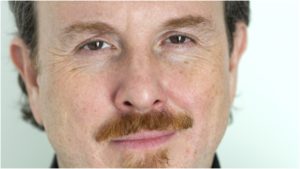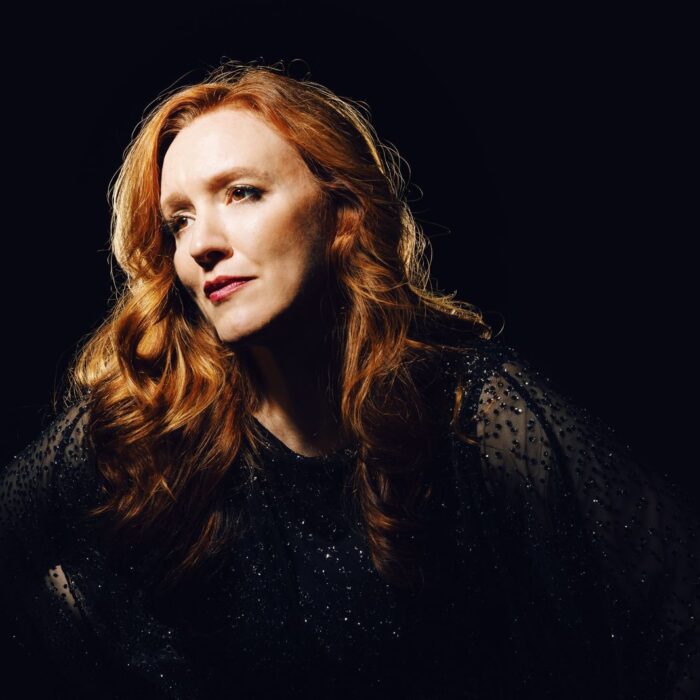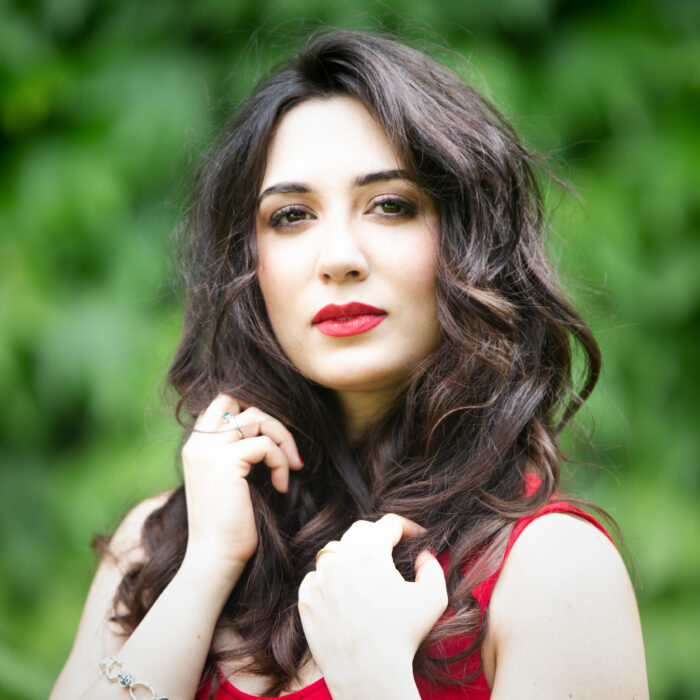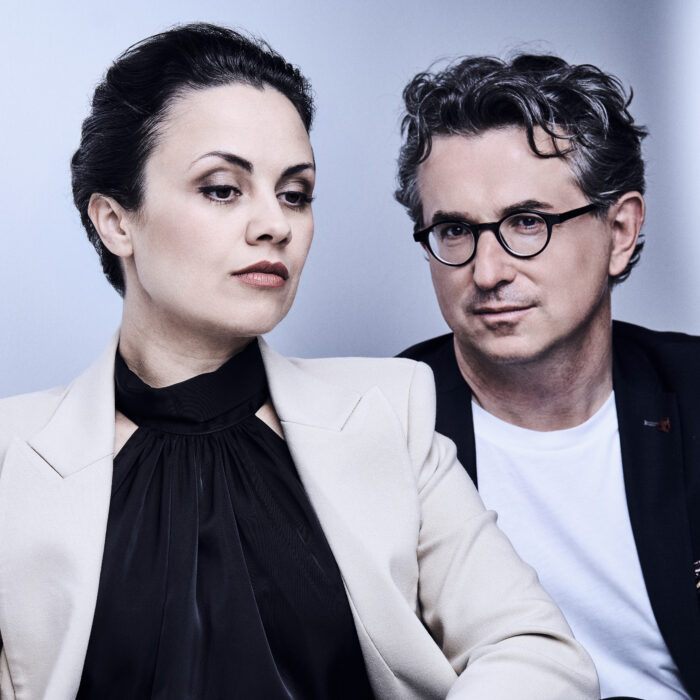
Q & A: Franco Vassallo On Playing Villains & His First Scarpia
By Francisco SalazarSince winning the international singing competition ‘As. Li. Co’ in Milan, things have only been on the rise for baritone Franco Vassallo.
He’s turned into one of the foremost intepreters of the bel canto repertoire of Donizetti and Bellini, as well as many Verdi, and has sung at La Scala Milan, the Vienna Staatsoper, and the Metropolitan Opera New York.
Throughout his career, he has performed under the baton of Riccardo Chailly, Daniele Gatti, Valery Gergiev, Daniel Harding, Nello Santi, Jeffrey Tate, James Conlon, Fabio Luisi, Daniel Oren, Anton Guadagno, Marco Armiliato, Marcello Viotti, Michele Mariotti, and Gianandrea Noseda among others. Safe to say, he’s among the top baritones in the opera world.
But the artistic way of life is evergrowing and this week, Vassallo takes a step into uncharted waters for him when he makes his role debut as Scarpia in Puccini’s “Tosca” at the Hamburg State Opera.
In anticipation of the debut, Vassallo spoke to OperaWire on the challenges of singing the villainous role and his return to the Bayerische Staatsoper for “Lucrezia Borgia.”
OperaWire: How do you view the character of Scarpia at this point, particularly in a time when sexual harassment is so prevalent in our culture?
Franco Vassallo: Scarpia is a sadistic manipulator, he abuses his power in order to reach his selfish purposes. He is an eternal archetype, the ogre of fairytales and, unfortunately, of everyday life. He embodies the centripetal and absorbing force of selfishness facing the centrifugal and radiating one of love. The Shakespearean “universal wolf” of Troilus and Cressida.
OW: Do you believe there are any sympathetic qualities for Scarpia? Is Scarpia in love with Tosca or it is just lust that attracts her to him?
FV: I think Scarpia‘s attraction for Tosca is pure lust. He wants to draw her vital energy, as a sort of butterflies collector. Not a nice person indeed but, nevertheless, a magnetic character, somehow attractive as all evil roles. Dark sides of human beings are always bewitching somehow.
OW: What are the vocal challenges and how does Puccini’s music in this opera compare to his other works? Do you think this is his most difficult baritone role?
FV: I absolutely think so, because there is the double challenge of the vocal line (very difficult) and of the acting. This is a very complex role; I think in no one other role is it so important to create an alchemy between singing and acting, the real “recitar cantando!” And in all of Puccini’s repertoire, Scarpia has a very different musical writing; more fluid, more rapid, more unexpected, more…modern!
OW: How do you adjust your voice when singing over such a massive orchestra, particularly in the Te Deum?
FV: When I now sing the ‘Te Deum” I just sing, staying in character. The big work with the voice was done before; Scarpia is a character that I will debut now, but I have been waiting to do this role before I started studying singing, more than 30 years ago…the veristic repertoire is the most difficult for the voice; so I built him up step by step and gradually I felt the right sound and the right character slowly come to me, more and more every year. Now that the right time to sing Scarpia has come!
OW: What is your favorite moment in the work?
FV: There are many, all the second act is an absolute masterpiece! I love the phrase: “ma fatelo tacere!”…is a very suffering moment and Scarpia puts still more violence and pressure on the exhausted Tosca; It’s very effective and extremely theatrical!
OW: Let’s talk a little about the second act. Scarpia never leaves the act and he sings throughout. How do you pace yourself, particularly when you have such dramatic moments? How do you balance the acting with the vocal requirements?
FV: I Think the Second act of “Tosca” is the most intense and theatrical act of all Operas.; a perfect “continuum where the audience is literally kidnapped, losing the perception of the time… a real seizure of the viewer (…as it is for Tosca herself)!”
I like that in this act that I enjoy every moment, every breath of the score. It is of course very important to maintain a balance between singing and acting, trying not to exceed, especially during the torture scene, because after there is the wonderful aria: “Già, mi dicon venal…” where it is very important to show a very good color, intense legato, and big extensions. Of course, because this is a new role, I know I am now just at the beginning of the process because you have to sing a role many times to know him in a deep way and understand all the “chiaro- scuri.” I now know all these colors with Figaro or Rigoletto, roles that I have sung almost a hundred times.
OW: You’re doing “Lucrezia Borgia” later in the season. Don Alfonso is also a bit villainous. Do you see any similarities between Scarpia and Borgia’s husband? What is it like to return to a production that you premiered years ago?
FV: Of course there is a line connecting Don Alfonso and Scarpia; two noblemen with a refined, gentle mask hiding a cruel, sadistic heart! They both like to play, like the cat with the mouse, before they kill their victims.
OW: You’re singing with the legendary Edita Gruberova again. What did you learn from performing with her about the style of bel canto? What is it like to sing with such a legend in opera?
FV: Edita is a Belcanto icon, a sensible and pleasant person and colleague. It‘s always a great pleasure and an honor singing at her side. I had the privilege of premiering several of my bel canto roles with her in such operas as “I Puritani,” “Lucia di Lammermoor” in 2000 at the Wiener Staatsoper in Vienna, “Lucrezia Borgia” in 2009 in München, “La Straniera” in Zurich in 2013 and “Roberto Devereux” in München on 2015. We’ve been singing together for almost 20 years.
OW: Finally, how is Puccini and Donizetti’s music different and how are they similar? What is the connecting point between these two periods?
FV: I feel Puccini is the heir to Verdi as Verdi was the heir to Donizetti; so Donizetti is like Puccini’s “artistic grandfather.” A lot of things changed in the world of Opera in the 60 years between their births, but the Italian tradition of the “recitar cantando” remains the column of all Italian Opera, from Monteverdi (and maybe still back again to Palestrina). And, in the obvious differences between the style of Puccini and that of Donizetti, there is an interesting connection in the scores of Don Alfonso and Scarpia. Both have very important vocal moments with big arias, but also many amazing and very interesting and refined”‘recitativi,” especially when the situation becomes very dramatic. In both of these characters acting is no less important than the vocal line; two wonderful roles of “cantante-attore.”


